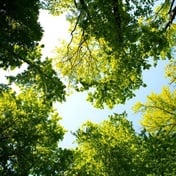Eczema in infancy predicted hay fever in childhood in a recent study, especially in children with asthma, but the relationship between infantile eczema and asthma without hay fever was less clear.
"Childhood eczema needs to be taken seriously," said researcher Dr John L. Hopper from University of Melbourne, Carlton, Victoria, Australia in an email to Reuters Health. "Anecdotal evidence suggests that it does not receive much attention as it does not have a similar impact to asthma and other childhood chronic diseases. However, our work shows that eczema has long term consequences."
Dr Hopper and colleagues applied a regression approach to parent-reported data on infantile eczema as a familial predictor of childhood asthma and hay fever as part of the Tasmania Longitudinal Health Study (TAHS).
Their study, reported online in the Journal of Allergy and Clinical Immunology, derived data from respiratory questionnaires for 8 583 probands (and their parents, who completed the questionnaires) and 21 043 siblings.
How the study was done
Having hay fever and asthma was strongly associated with eczema within a child (odds ratio, 4.41) and across siblings (OR, 1.97). Less than 20% of the association was explained by parental hay fever and asthma. Having hay fever only was also associated with eczema within a child (OR, 1.77) and across siblings (OR, 1.68). Parental hay fever explained 5% and 11%, respectively, of these associations.
In contrast, eczema in infancy was associated with childhood asthma within a child, but without significant associations with sibling eczema or parental asthma, and there did not appear to be a direct causal relationship between the two conditions. "To the best of our knowledge," the researchers say, "this is the first study to show that the contribution of eczema to hay fever and asthma in childhood varies for different phenotypes."
"These findings suggest that eczema may lead to hay fever," Dr Hopper concluded. "It may mean if we prevent eczema we may be able to prevent hay fever." Dr Hopper added, "We currently do not have firm evidence how best to prevent eczema, although there is some suggestion that moisturising the skin may help. The trials are underway to test this theory."
Dr Sabina Illi, an immunology researcher from University Children's Hospital in Munich, Germany, takes issue with some of the report's conclusions. For instance, she told Reuters Health in an email, "There is no question of whether eczema is/is not associated with other allergic outcomes later in childhood: indeed many children with atopic eczema early in life will be asthmatic or have hay fever later at school age. The question here is whether atopic eczema is the cause and whether, if we could eliminate eczema, we could eliminate hay fever/asthma in these children."
What the researchers say
The researchers say eczema may indeed cause hay fever, but in Dr Illi's opinion, "This is not true. Causality is not a statistical concept. Biological plausibility and causality are what the investigator makes out of a statistical model. And a statistical model is hypothesis driven, as it strongly depends on which factors or variables you put into the model."
"I truly believe that eczema is not the cause, but eczema plus asthma or eczema plus asthma plus hay fever are specific phenotypes that are driven by various still unknown factors in-utero and early in life," Dr Illi said.
(Reuters Health, Will Boggs, October 2012)
Read more:




 Publications
Publications
 Partners
Partners















